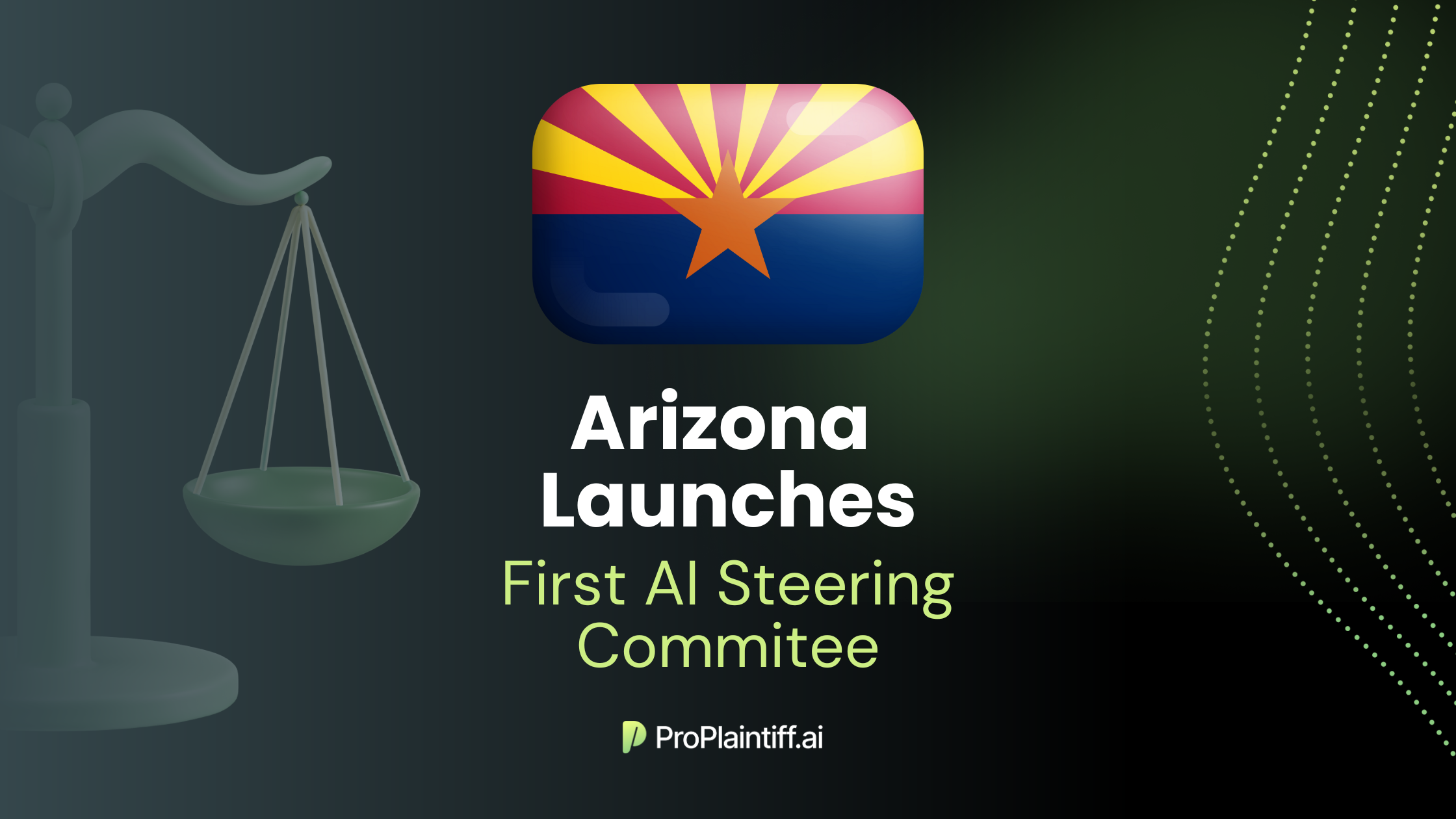
.webp)
.webp)
.webp)
.webp)

On May 9, 2025, Governor Katie Hobbs announced the formation of Arizona’s first Artificial Intelligence Steering Committee, a major step in shaping how the state navigates the rapid rise of AI technology. Designed to guide ethical adoption and responsible innovation, the committee brings together leaders from education, public safety, law, technology, and economic development.
The initiative places Arizona among a growing number of states creating formal structures to evaluate and govern AI's impact. With the goal of delivering policy recommendations by spring 2026, the committee is tasked with developing frameworks for transparency, equity, and accountability in the use of artificial intelligence across public systems.
Governor Hobbs emphasized the importance of public trust and thoughtful implementation, stating, “As the use of AI grows, so must our commitment to responsible and ethical innovation.”
In recent years, artificial intelligence has begun making its way into public sector operations—cautiously and under growing scrutiny. From pilot programs in public safety to early-stage tools in healthcare and transportation, AI adoption is slowly expanding. With it comes a heightened awareness of the risks: algorithmic bias, lack of transparency, and unclear accountability.
Governor Hobbs’ decision to launch the AI Steering Committee reflects a desire to get ahead of those concerns. Rather than wait for problems to surface, her administration is working to establish a framework that ensures AI is implemented responsibly—before it becomes deeply embedded in critical state systems.
This move also aligns with broader national efforts. As the federal government weighs executive orders and regulatory pathways, Arizona is stepping forward to lead at the state level, ensuring that innovation is guided by public values from the start.
So who exactly is on this committee—and what will they be doing?
The newly formed committee includes experts from across sectors—public safety, education, law, technology, and economic development—each bringing their own insight into how AI will affect Arizona's future.
Their mission is to deliver a set of ethical, practical, and forward-looking recommendations by spring 2026. These will cover issues like procurement, governance standards, public engagement, and AI literacy across government and community institutions.
But what exactly will the committee focus on—and how will it get there?
The AI Steering Committee is scheduled to hold its first meeting in summer 2025, with final recommendations expected by spring 2026.
Arizona is moving early to establish its own guardrails before AI tools become widespread in critical public systems. Rather than wait for federal mandates, the state is taking a proactive role in shaping how artificial intelligence will be used—and governed—locally.
At the core of the committee’s work is the goal of ensuring Arizona’s approach to AI centers on the public good. This means creating a clear governance framework, increasing public awareness, and building systems of accountability across state agencies.
The group will also focus on how Arizona buys and deploys AI systems, what standards vendors should meet, and how to ensure fair outcomes. Education and transparency are top priorities—so that both workers and citizens understand the technology and how it's being used.
Ultimately, the committee will deliver a comprehensive set of recommendations by spring 2026.
Arizona’s AI Steering Committee joins a wave of state-level efforts to address the rapid rise of artificial intelligence. With federal policy still evolving, states are stepping in to set their own standards.
California recently issued formal guidance on the use of generative AI by lawyers, focusing on ethical safeguards and billing transparency. In Florida, a new ethics opinion from the Florida Bar allows the use of generative AI in legal practice—as long as attorneys ensure compliance with their professional responsibilities.
Arizona’s approach stands out for its broad representation and clear policy timeline, showing that the state is prepared to lead—not follow—in this space.
As detailed in the official announcement from Governor Hobbs’ office, the committee includes:
Over the next year, members will focus on producing a set of policy recommendations that guide the responsible development, use, and oversight of artificial intelligence across state systems.
Core responsibilities include:
The committee is expected to prioritize workforce training and public understanding of AI. That includes preparing public employees for the ethical use of emerging tools and helping communities understand how AI is already shaping their lives.
In legal settings, for instance, AI is now handling everything from intake to legal research—as explored here in the rise of AI paralegals. These changes underscore the need for accessible education and safeguards.
Policy can’t be written in a vacuum. Arizona’s committee will invite residents to share feedback through public forums and transparent updates. The goal: earn trust by ensuring people understand and help shape how AI tools are used.
Arizona’s goal is not just to deploy AI—but to do it with consent, clarity, and community involvement at every step. So what can Arizonans expect as this process unfolds over the next year?
The committee will deliver final recommendations by spring 2026, covering everything from procurement to ethics to transparency standards. Before then, Arizonans can expect community listening sessions, working drafts, and test cases to pilot best practices.
This is Arizona’s chance to write the rules early—before AI becomes too embedded to shape.
Arizona’s new AI Steering Committee isn’t just about keeping up with technology—it’s about getting ahead of it. With a clear timeline, a wide range of voices at the table, and a focus on transparency, the state is laying the groundwork for how AI can be used responsibly in government.
While federal rules are still taking shape, Arizona is choosing to act now. The goal isn’t just to use AI, but to make sure it’s done in a way that works for everyone—fair, clear, and open to public input.
The next year will be key as the committee builds out its recommendations. It’s an early step, but a strong one toward shaping a future where AI supports—not replaces—human decision-making.
What is the purpose of Arizona’s AI Steering Committee?
To develop statewide policy recommendations for the ethical, transparent use of AI.
Who is on the committee?
It includes leaders from education, law, tech, economic development, and government agencies.
When will recommendations be released?
By spring 2026, with the first meeting scheduled for summer 2025.
Why form the committee now?
To establish rules before AI becomes deeply embedded in public systems.
How can the public stay informed?
Public forums, official updates, and draft releases are expected throughout 2025.
Will this impact public systems like schools or law enforcement?
Yes, those are key areas of focus for the committee’s work.